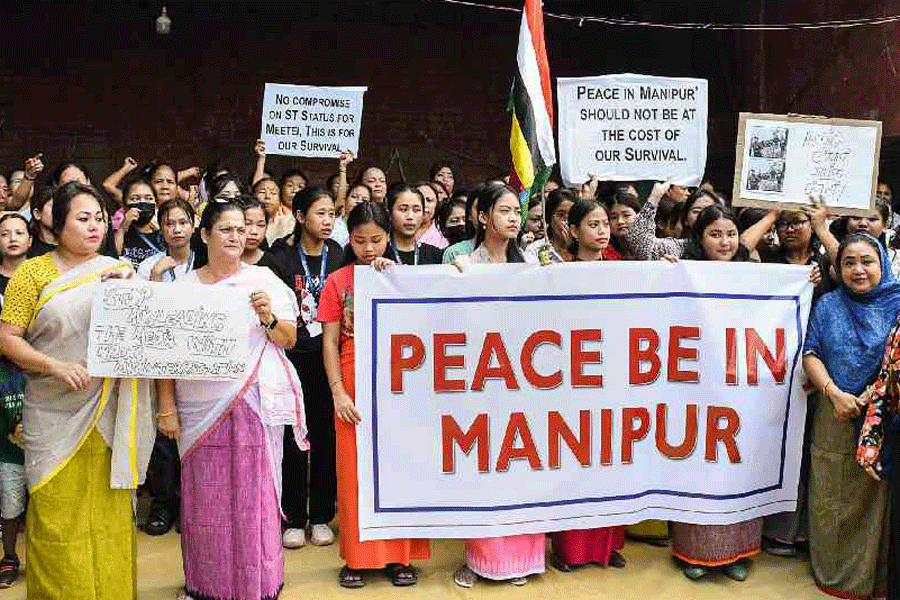Watch: The Men Behind Violence In The Indian State Of Manipur
(VIDEO) Since May 3, ethnic violence has engulfed Manipur, a state in northeastern India. At least 150 people have been killed, over 6,000 homes and 400 churches destroyed and more than 50,000 people remain displaced.
The Christian Kuki-Zo tribal community reports almost daily attacks, allegedly by Meitei extremist groups Arambai Tenggol and Meitei Leepun, alongside Manipur Police, their elite commandos and the India Reserve Battalion.
Manipur officials have denied these allegations, claiming attackers wore police uniforms to create mistrust. This claim is based on newspaper reports of police uniforms being made in bulk by civilians. However, videos from the early days of the violence appeared to show police officers with Meitei mobs attacking Kuki-Zo homes.
WATCH: Ethnic Clash Or Targeted Violence? Questions And Deaths In India’s Manipur State
I traveled to Manipur earlier this month — my third visit since the violence began — to assess whether the Manipur Police could be given the benefit of the doubt. During my trip, I encountered a horrifying attack on a young man from the Kuki-Zo tribe. A survivor who witnessed the attack told me that policemen were indeed involved in that assault, too.
Kuki-Zo leaders are demanding an investigation into their allegations that attacks on civilians and village volunteers — a term used for ordinary youth guarding their villages with guns against purported regular assaults by Meitei extremist groups — are being carried out by state forces.
I also observed that the violence, which has roots in a longstanding conflict between the majority Meiteis community and Kuki-Zo people over land resources, legal recognition and political influence, is far from over.
The Meiteis, who are predominantly Hindu, account for roughly 53% of Manipur’s population but inhabit only 10% of the state’s land. They demand tribal recognition, which would grant them similar constitutional privileges as tribal communities, including the right to buy land in Kuki-Zo areas. The Kuki-Zo tribes view this as an attempt to usurp their ancestral lands.
Tensions escalated in April, when the Manipur High Court directed the state to consider including the Meitei community in the Scheduled Tribe list. A peaceful rally on May 3 against that demand quickly turned violent when Meitei extremist factions allegedly attacked tribal protesters. Rumors about Kuki-Zo people assaulting Meitei women and killing a child triggered more violence, although no police complaint corresponds to those alleged incidents.
The initial violent turmoil lasted four days until the army and federal forces intervened on May 6. Sporadic yet lethal attacks continue, with videos revealing police presence amidst mobs attacking Kuki-Zo homes.
The feud also involves the resource-rich hills, the ancestral land of the tribes. Their conflict with both the government and the Meiteis intensified after the Hindu nationalist Bharatiya Janata Party assumed power in Manipur in 2017. Under Chief Minister N. Biren Singh, a Meitei, the government demolished a few Kuki-Zo homes and churches, citing a crackdown on “protected forests” or government-owned land.
In the tribal-majority Churachandpur district, Kuki-Zo individuals destroyed Meitei homes but claim not to have sought retribution by harming Meitei people, instead allowing them to leave the district. However, Meiteis are being killed, mostly while attacking Kuki-Zo homes, as village volunteers allegedly fire back in self-defense.
The situation remains tense. While law and order is a state subject according to the Indian constitution, Kuki-Zo tribal leaders argue that the allegation of state forces being involved in the attacks necessitates immediate intervention by the federal government, including the imposition of the president’s rule.
After a video went viral recently showing two Kuki-Zo women being paraded naked and groped in public, the expectation was that the federal government would now ensure that the violence stops — but that hasn’t happened.
Vishal Arora is an independent journalist based in New Delhi, India, who covers Asia and beyond. He serves as editor of @Newsreel_Asia and is a board member of The Media Project. He’s written for many outlets including The Wall Street Journal, The Diplomat and The Caravan.

